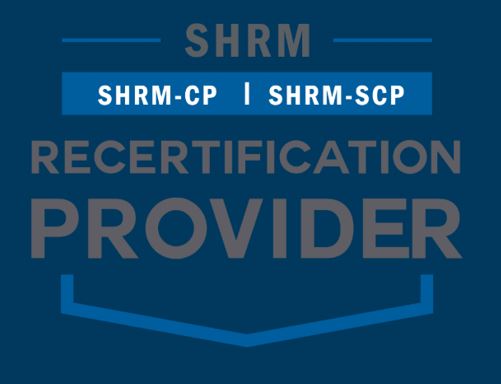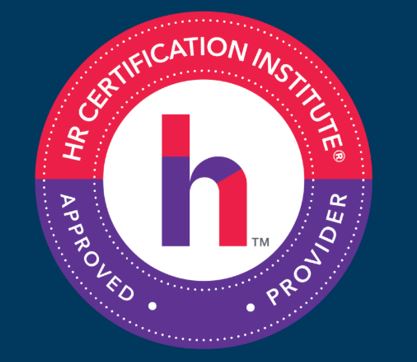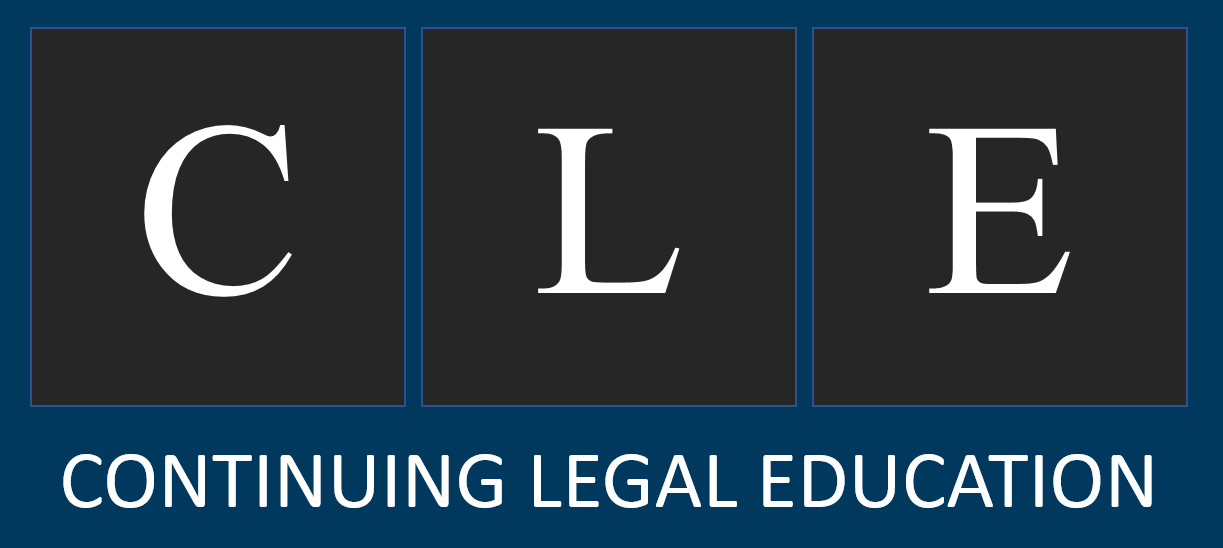CERTIFICATE IN CONDUCTING LAWFUL WORKPLACE INVESTIGATIONS SEMINAR
Do you want to be a top of the line, employment-oriented investigator? The Advanced Certificate in Conducting Lawful Workplace Investigations Seminar focuses in part on investigation strategy and effective methodology. The course includes how to handle actual situations, including specific investigation roadblocks and how to get around them, obtaining and evaluating data, using information to obtain more information, creating documents to insure that the investigation results and process will hold up in court and before the EEOC and state organizations, and making decisions on what actually happened regarding what you are investigating. The course will use specific situations that arise in investigations and how to solve the problems that come with those situations. Each situation will end with an effective and specific strategy to utilize and a suggested process to successfully resolve the applicable situations. The course focuses on reality and scenarios are the heart of the learning.
Becoming a top-line investigator isn’t easy – good planning skills are required as are effective questioning and making determinations. Also crucial are (1) prepping for an investigation, (2) determining strategy in regard to obtaining information, (3) effectively interviewing witnesses, complainants and alleged wrongdoers, and (4) determining what really did happen, who is honestly telling the truth and who isn’t, and what to explain what factually happened to managers so that managerial decisions can be made about the situation.
Top line investigators write excellent reports, provide insight to issues that might still exist following the situation that was investigated, what options may be available to better the future, and help discuss the legal risk of a claim by helping evaluate how the investigation increases or decreases such risk. The best investigators also often see and analyze a broader problem than was identified through what was expected to be a limited investigation situation.
This advanced level investigation course is intended to prepare you for more difficult situations, developing better strategies for resolving those difficult situations, providing strategic ways to get what you need in interviews, documents, social media and other data sources, and make effective determinations. The course includes some difficult and uncertain factual situations, successful investigative methods and how to help your company defend a case if someone files a court or EEO-type claim.
Attendees will be given scenarios that will extend their strategies and abilities. These scenarios are not simple, but they are an exceptionally good way to increase your capabilities. Further, the program will be led by a lawyer, but not just a lawyer who simply tells you the importance of investigations, but a lawyer who had done many investigations as an in-house lawyer and as an outside investigator, and who has the ability to handle the most difficult investigations. He will provide you with strategies that you’ve never considered. He also will work with the attendees in interviewing difficult (and some less difficult) people, relying on his ability to play varying roles to show the attendees how best to deal with different types of people who they might be interviewing.
ENROLL NOW
Seminar Tuition: $1,575
This program is presented virtually and is also available in-house for you and your team. Learn more.
This uniquely interactive and comprehensive program will provide investigators with a framework of legal and best practices knowledge and will give you the confidence, skills and techniques needed to properly conduct an effective investigation.
Sample Investigation Scenario 1
You’ve just finished an awkward sexual harassment investigation. It was much different than the normal sexual harassment situation – the office manager’s assistant is known to be gay and open about it. He apparently has been teased by others in the office and occasionally he was told that he would be going to hell and that a faggot like him should stay away from “true Christians.” The teasers and “true Christians” included the marketing manager, the marketing manager’s female assistant, two lower level marketing assistants and a couple of salespersons. Interestingly, the harassment complaint did not come from Freddie, the gay assistant. Instead it was from his boss – Brenda, the office manager. Brenda has called you into a meeting with her – just the two of you – so she could hear about the investigation results before Freddie or anyone else gets told. You explain that you found that the alleged bad doers did in fact act inappropriately – some of the evidence is in emails and other information came from notes that Freddie kept and there were some sincere, “please forgive me, I’m sorry” statements by three of the wrongdoers. Once Brenda hears all that, she looks at you and says is this illegal sexual harassment? You respond that it is illegal harassment and that conclusion has been clearly noted in your investigative report along with a statement saying the behaviors in question also violate the company’s rules. Brenda then asks who is getting fired among the wrongdoers. You say that HR will address the issues and take some action against the wrongdoers, but no one is going to be terminated. Brenda responds by saying “but we have to fire the worst ones because they violated the law. You know that, don’t you? You pause and say I think you’re right, but I’m not a lawyer. What went wrong in this scenario and what should have happened instead?
Sample Investigation Scenario 2
You’ve completed an investigation regarding alleged racial harassment by Becky Jones, one of the company’s best technical operators. The investigation results are that Becky did indeed pick on several people of color in the sales area (the area that seeks a lot of help from the technical operators). The language wasn’t horrible, but it also wasn’t appropriate. Two of the sales people Becky picked on were quite specific about the language, but they also said that Becky isn’t a “real racist” but instead she seems to want to be “as cool as a rapper.” You’ve just completed your investigation report and you’re now finishing your post-investigation meeting with Ralph, the highest level manager in the technical area. You’ve told him that Becky may not have been badly intended, but she has to stop and that HR has already told Becky that some level of punishment is needed, but not termination – instead likely loss of bonus this year. Ralph says in response “you have to help me – tell HR that Becky meant well and she just needs to learn aspects of reality.” You say “taking no action other than saying “Becky, you need to learn” isn’t enough for HR. Ralph responds that if we eliminate the upcoming bonus, Becky is likely to quit and there are numerous jobs elsewhere and we can’t afford to lose her – can you revise the report and help me deal with HR?” So what do you do?
Sample Investigation Scenario 3
While sitting quietly in your office getting work done, Grace and William from ABC Company call and ask that you meet with them immediately. You respond that you’re right in the middle of a complicated investigation report, but William responds “there is nothing more important than what we need to tell you,” and Grace adds “it honestly can’t wait – lives may be stake.” That definitely gets your attention, so you ask what is going on. Grace asks that you come to their location ASAP, which you do since it’s only two miles away. Grace tells you that three employees that work with Orlando Ramirez have told her that Orlando may be planning to kill his manager. You ask how they know that and they answer it’s apparently in his Facebook page. You ask for the Facebook data but neither Grace nor William have actually seen the posts. The information they have is from others who apparently have seen the page. So, to start, how can you legally get the alleged information? Further, should you immediately talk with Orlando?
Can you get the Facebook information? If so, how to get it and what ways not to get it?
Let’s assume you got the Facebook posts and while the language isn’t as frightening as you expected, there are comments like “I hate my boss Belinda. She is an evil witch and an unfair, stupid jerk. Someone needs to kill her, as soon as possible. If no one else steps forward, I think I might, but I would rather pay someone else. However, I might enjoy doing the dirty work.” Some other posts by Orlando show he owns numerous guns, including an assault rifle. What do you do now and what do you say to both Orlando and Belinda, if anything? If you eventually see the Facebook posts and you’re convinced that Orlando could be serious, what do you do?
Gavin S. Appleby advises and represents employers in a broad range of employment law matters, from defending single-plaintiff and class action employment cases to offering advice on difficult employment issues and labor relations matters.
Gavin has significant knowledge of drug testing and sports anti-doping matters. He has tried cases in 20 different states and regularly appears before the Equal Employment Opportunity Commission, the National Labor Relations Board, and the Department of Labor as well as many state agencies. A member of the professional tennis Anti-Doping Review Board and the Anti-Doping Review Board for international cricket, Gavin co-authored professional tennis’ anti-doping rules and successfully defended sports federations in international drug hearings. He has also published numerous articles on employment and labor law issues, ranging from union avoidance to dealing with problem employees.
Gavin counsels clients in U. S. and foreign ethics matters, codes of conduct and codes of social responsibility. Additionally, he consults with employers on human resource practices, including:
- Establishing ADR processes
- Developing systems for providing better and more effective advice to managers
- Instituting programs aimed at early resolution of employment problems
Renowned as an exemplary employment law and diversity trainer, Gavin is a featured training expert in employment law at the Institute for Applied Management and Law. He has developed legally-defensible diversity programs, created numerous interactive training programs and trained thousands of human resources professionals and operations managers across the country.
Gavin has worked for some of the most prestigious employment law firms and as Chief Employment and Litigation Counsel at a consumer paper products company. He served as an adjunct professor of labor law at Georgia State University School of Law.
“I learned so much more from this law seminar than I have ever learned in other seminars.”

SHRM has pre-approved this seminar for Professional Development Credits (PDCs) toward SHRM-CP℠ or SHRM-SCP℠ Certifications.

IAML is a recognized provider of recertification credits. HR Certification Institute® has pre-approved these programs towards aPHR™, aPHRi™, PHR®, PHRca®, SPHR®, GPHR®, PHRi™ and SPHRi™ recertification.

IAML certifies that this activity conforms to the standards for approved education activities prescribed by the minimum continuing legal education rules and regulations of the states listed below.
Credit hours are based on attendance in the full 2 day virtual seminar. If you don’t see what you’re looking for, please email us or call 949-760-1700.
Society of Human Resource Management (SHRM)
The Institute for Applied Management & Law, Inc. is recognized by SHRM to offer Professional Development Credits (PDCs) for the SHRM-CP or SHRM-SCP. This 2 day program has been approved for 8 PDCs.
HR Certification Institute (HRCI)
This 2 day program has been approved for 8 HR recertification credit hours toward PHR and SPHR recertification through the HR Certification Institute (HRCI).
Continuing legal education (additional fees for CLE application and/or reporting fees may apply):
*The states listed below have been approved for 2022. We will be submittting 2023 programs for approval from these states.
Alaska
Alaska Bar members may claim credit for attendance at CLE programs offered in or from other jurisdictions if the program has been accredited by another CLE jurisdiction (which includes California.) The State Bar of California has approved this program for 13 hours.
Arizona
The State Bar of Arizona does not approve or accredit CLE activities for the Mandatory Continuing Legal Education requirement. This activity may qualify for up to 13 hours toward your annual CLE requirement for the State Bar of Arizona.
Arkansas
The Supreme Court of Arkansas Office of Professional Programs has approved this seminar for 13 hours.
California
This activity has been approved for Minimum Continuing Legal Education credits by the State Bar of California in the amount of 13 credit hours. IAML certifies that this activity conforms to the standards for approved education activities prescribed by the rules and regulations of the State Bar of California governing minimum, continuing legal education.
Florida
Florida Bar members may claim credit for attendance at CLE programs offered in or from other jurisdictions if the program has been accredited by another MCLE jurisdiction (which includes California.) This program has been approved by the State Bar of California for 16.75 hours. Florida credits are based on a 50-minute hour, therefore this course is eligible for 15.5 MCLE credit hours.
Hawaii
Attorneys licensed in Hawaii who attend a course that has been approved for credit by a Hawaii State Bar approved jurisdiction (which includes California) may claim the CLE credits from the course or activity without seeking prior Board approval for the course or activity. This program has been approved by the State Bar of California for 13 hours.
Maine
Maine attorneys are eligible to receive 13 credit hours for this program through Maine’s reciprocity provision that allows credit hours for courses or activities approved by another MCLE state (which includes California) and certified by that state’s CLE regulatory authority will be accepted for identical credit by the Board of Overseers of the Bar in Maine.
Mississippi
The Mississippi Commission on CLE has approved this seminar for 13 MCLE credit hours.
Missouri
This seminar has been aproved by the Missouri State Bar for 16.2 hours.
New Hampshire
NHMCLE does not approve or accredit CLE activities for the New Hampshire MCLE requirement. IAML believes this course meets the requirements of New Hampshire Supreme Court Rule 53 and may qualify for 780 minutes (15.5 hours) toward the annual NHMCLE requirement. New Hampshire attendees must self-determine whether a program is eligible for credit, and self-report their attendance.
New Jersey
Attorneys licensed in New Jersey who attend an out-of-state CLE course that has been approved for credit by a New Jersey State Bar approved jurisdiction (which includes California) may claim the CLE credits from the course or activity without seeking prior Board approval for the course or activity. This program has been approved by the State Bar of California for 13 hours.
New York
An attorney completing an eligible Approved Jurisdiction course (which includes California) may claim 15.5 hours of New York CLE credit in accordance with the requirements of the Program Rules, Regulations and Guidelines. This program has been approved by the State Bar of California.
North Carolina
This course has been submitted to the North Carolina State Bar Board of Continuing Legal Education for 13 hours.rs.
Ohio
This course has been approved by the Supreme Court of Ohio Commission on Continuing Legal Education for 13 hours.
Pennsylvania
This activity has been approved for Minimum Continuing Legal Education credit by the State Bar of Pennsylvania in the amount of 13 credit hours. IAML certifies that this activity conforms to the standards for approved education activities prescribed by the rules and regulations of the State Bar of Pennsylvania governing minimum continuing legal education.
Tennessee
This Tennessee Commission on Continuing Legal Education & Specialization has approved this seminar for 13 credit hours.
Vermont
This course has been approved by the Vermont Supreme Court Board of Bar Examiners for 13 credit hours.
Virginia
The Virginia CLE Board has approved this seminar for 13 credit hours.
Wisconsin
This course has been submitted to the Supreme Court of Wisconsin Board of Bar Examiners for 15 credit hours.
YOUR SATISFACTION IS GUARANTEED
We're confident you're going to find this program to be highly beneficial and a fantastic use of your training budget! If, for any reason, you aren't completely satisfied, we will reimburse your tuition costs.

The registration fee for the Advanced Certificate in Conducting Lawful Workplace Investigations Seminar is $1,575. The fee includes extensive, specially prepared seminar materials and recordings of the sessions.
While registrations may be accepted within the two weeks prior to the beginning of the seminar, we suggest that you call IAML to confirm space availability.
Payment Options: The full enrollment fee payment should be received by IAML at least two weeks prior to the seminar. Payment can be made by check, electronic transfer or credit card (American Express, Discover, Mastercard, Visa).
Are you eligible for a discount?
Registrants who have participated in a previous Investigations Seminars are entitled to a $100.00 discount, upon request at the time of registration.
Once an organization has enrolled a representative in any 2023 Workplace Investigations Seminar, subsequent 2023 Workplace Investigations registrants from the same organization are entitled to a $50.00 discount, upon request at the time of registration.
To receive the discount, participants need not attend the same location or date. Discounts must be requested at the time of registration and are not combinable with other discount offers.
Very attractive discounts are available to organizations which send 5 or more participants to IAML seminars in any 12 month period. Participants do not necessarily need to attend the seminar at the same location or time.
Your policy requires payment two weeks in advance. Can I register for a program that is taking place in less than two weeks?
Yes, based on space availability. You will be asked for a credit card number at the time of registration, or you may be asked to send a check via overnight mail. Because IAML’s cancellation policy requires written notification at least two weeks in advance, by registering for a program less than two weeks in advance you are liable for the entire fee, even if you do not attend.
What is your cancellation/transfer policy?
Participants will receive a full refund of any fees paid if IAML receives written notification that they will be unable to attend at least two weeks prior to their program’s starting date. Otherwise, participants are liable for the entire fee. Registrants requesting a transfer to another program within this two week period will be charged an additional fee of $150.00. You may substitute an associate at any time at no additional fee.


